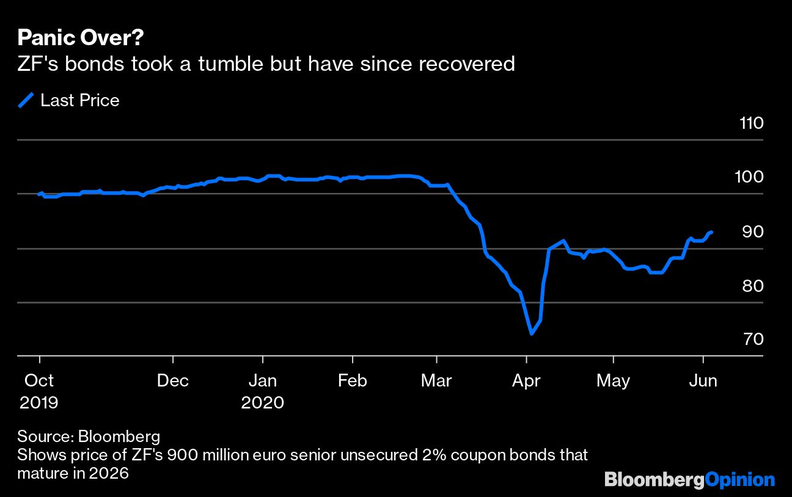In 2008, Schaeffler, a family-owned German supplier, made an offer to buy the shares of its listed rival Continental. It almost collapsed under the debt it amassed to fund the deal, which was unveiled shortly before the Lehman Brothers bankruptcy.
A decade later, another privately held German supplier, ZF Friedrichshafen, has made a similarly ill-timed, debt-funded takeover: the $7 billion acquisition of truck-braking specialist Wabco Holdings. ZF is now cutting thousands of jobs to keep its creditors at bay.
It's possible you have not heard of ZF, because it does not sell directly to consumers and is not listed on the stock market. But you will have heard of Ferdinand von Zeppelin, the man who set up ZF a century ago to start building gears for his airships. This mode of travel captured the world's imagination until the 1937 Hindenburg fire ended the era of luxurious passenger-carrying airships.
Today ZF is one of the largest suppliers, with almost 40 billion euros ($45 billion) of yearly sales. Its 160,000 employees make everything from vehicle transmissions to braking and automated-driving technology.
Little known, big player
Instead of airships, ZF has used aggressive dealmaking to cross the Atlantic.
The company swallowed U.S. rival TRW Automotive for $12.9 billion in 2014, and after years eyeing Wabco it finally made a move last year. (Wabco is based in Bern, Switzerland, but was listed in the U.S.)
These deals have helped reduce the company's dependence on combustion-engine technologies, which now comprise less than 30 percent of ZF's revenues.
But future-proofing has forced the once cautious German group to embrace some pretty racy, Anglo-Saxon ways.
The Wabco deal was priced at an eye-watering 20 times the target's average earnings over the past three years. ZF has amassed 9.6 billion euros of debt and it has another 5 billion euros of pension liabilities, according to Bloomberg data.
Wabco's boss, Jacques Esculier, is in line to receive a $24 million golden parachute payment for selling to ZF, but that is nothing compared with the $88 million that TRW boss John Plant received after ZF's takeover.
Some companies have tried to amend or back out of deals agreed before the coronavirus pandemic but the Wabco deal closed as planned last month. ZF's management wrote immediately to employees, revealing up to 15,000 job cuts (about 10 percent of its workforce).
If debt covenants are not met, "external creditors could demand influence over our business decisions," the email warned. Lacking a stock market listing, ZF can't easily raise capital from equity investors.
When car sales were still growing steadily, automotive companies and their suppliers could afford to carry some excess weight. ZF's operating profit margins were about 4 percent on average over the past five years, providing only a thin cushion.
Now it's having to confront three shocks all at once: coronavirus production shutdowns, a global recession and the structural shift to electric vehicles.


